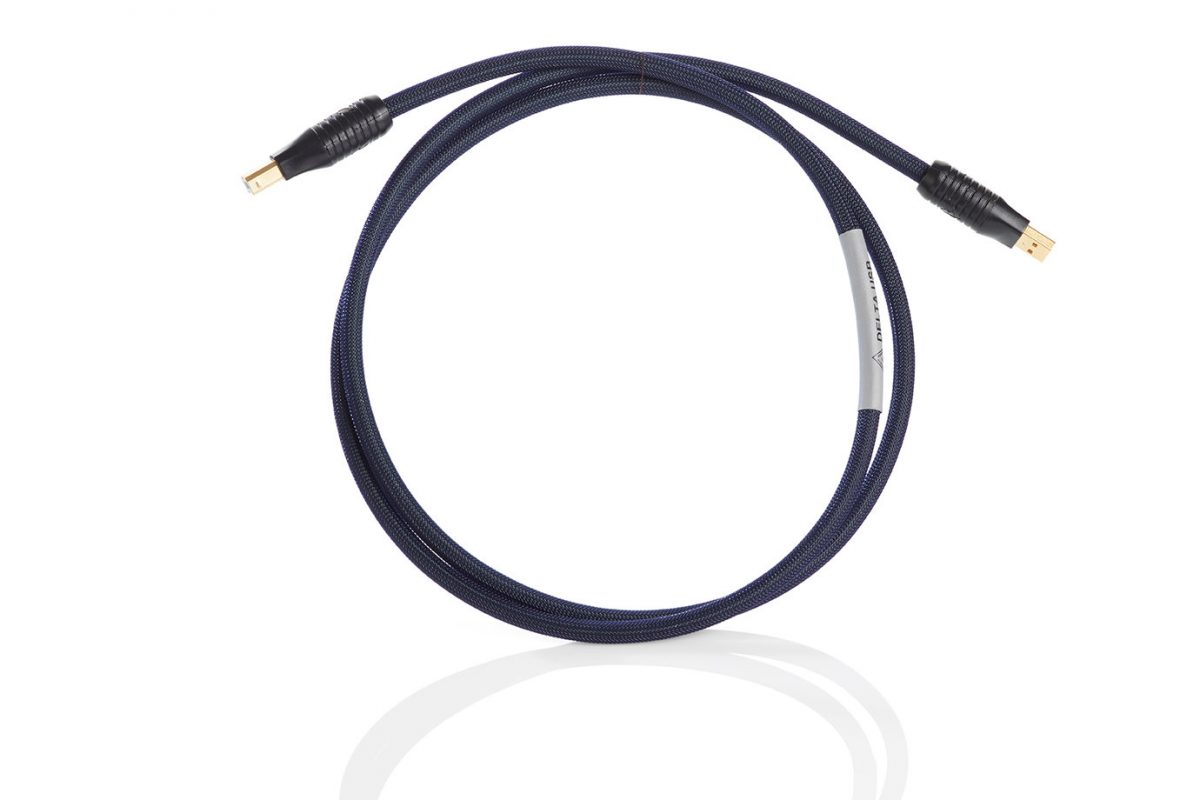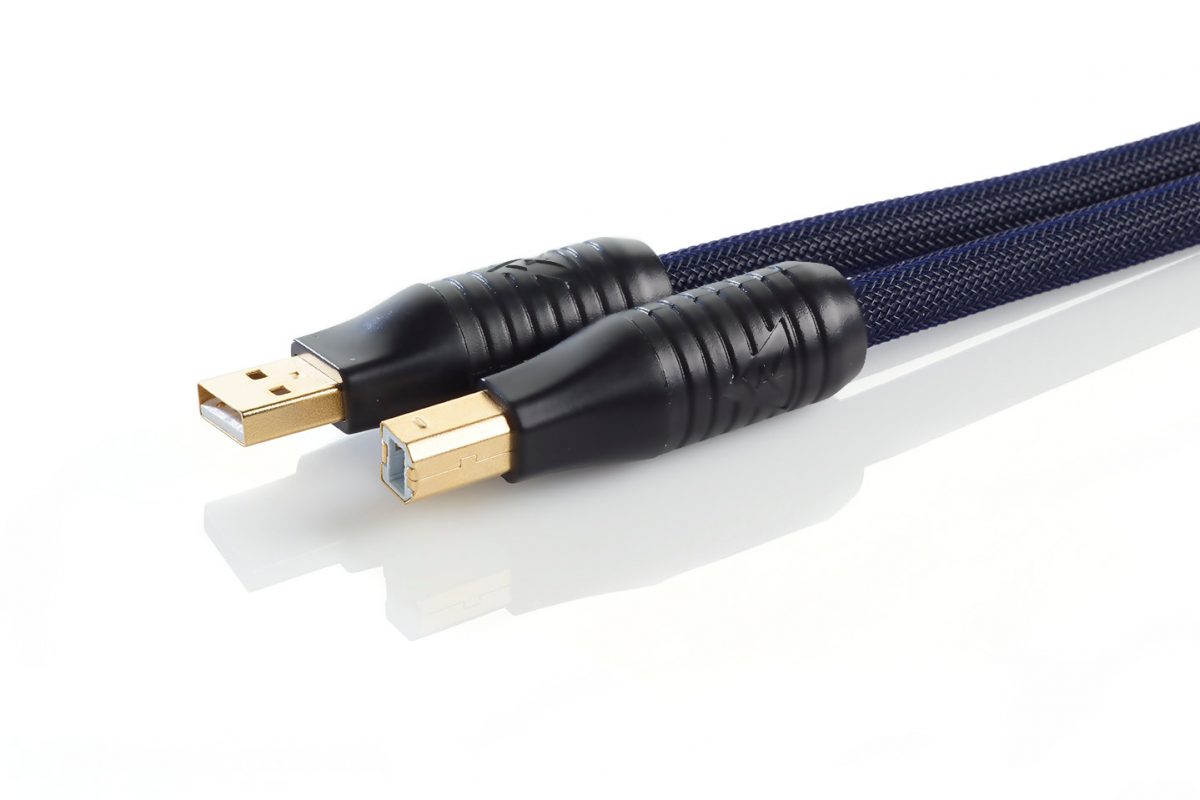-
There are many problems with off-the-shelf USB cables including poor quality conductors and dielectrics and insufficient shielding. Conventional cables induce high amounts of signal jitter and phase noise degrading sonic performance.
The Delta USB cabling is an exclusive Shunyata Research product that was designed to achieve reference level performance but at a very reasonable price point. ArNi® silver conductors and fluorocarbon dielectrics and PMZ construction achieves low levels of jitter and phase noise measurements. Silver-plated copper braided shields protect the delicate signals from external RFI/EMI.
SR-USB — There are very few great quality USB connectors so we created our own. It features an easy to grip, large diameter head-shell that accepts large gauge wiring. It has an exceptional strain-relief system that ensures longterm reliability even with heavy usage. The contacts are made from high conductivity gold-plated copper assuring minimal signal junction impedance.
PMZ — Shunyata Research digital cables are produced using a Precision Matched Impedance cable geometry. This means that tolerances of the conductor surface, dielectric extrusion, and the precision of the braided shield are held to minute variances. To achieve these tight tolerances, the extrusion and braiding machines must be run at one-quarter speed during the manufacturing process. The result is better performance through a reduction of cable-induced signal jitter.
ArNi® wire was designed by Shunyata Research to be the finest quality wire available. It begins with the highest purity of copper and silver metals available, including Ohno (single crystal), PCOCC silver and OFE C0101 conductors. Fluorocarbon dielectrics, usually only found in aerospace applications that have exceptional electrical characteristics including extremely low dielectric absorption, high dielectric strength and superb heat resistance. When used in digital wiring it significantly reduces transient energy storage and release which affects phase noise performance.
KINETIC PHASE INVERSION PROCESSING
Kinetic Phase Inversion Processing was developed by Caelin Gabriel after years of research into the underlying causes of various effects such as burn-in, wire directionality and the effects of cryogenic treatment. He discovered that there was an underlying core principle that burn-in and cryogenics only partially addressed. Once the governing principle was understood it became possible to create a processor that reduces the need for long burn-in periods and eliminates the effects of cryogenic treatment. Four-days of continuous KPIP™ processing dramatically reduces the sonic ups and downs associated with burn-in, delivering a relaxed and natural presentation.
-
SPECIFICATIONS:
Cable Type: DELTA-USB
Conductors: ArNi®, PCOCC SPC, PMZ
Dielectric: fluorocarbon
Shield: SPC braided (95% coverage)
Impedance: 90
Connectors: SR-USB
TAP Modules: NA
KPIP Processing: 4-days
Length: 1.50 meters
Safety Assurance:
Continuity and polarity tests – by two technicians
HiPOT tests insulation breakdown @ 1,200 VAC








